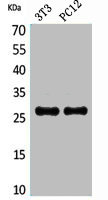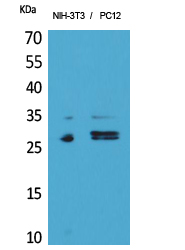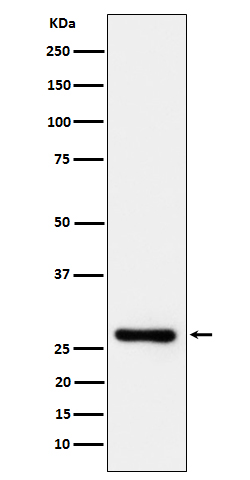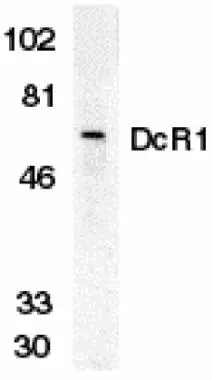DcR1 antibody
GTX70466
ApplicationsWestern Blot, ELISA
Product group Antibodies
ReactivityHuman
TargetTNFRSF10C
Overview
- SupplierGeneTex
- Product NameDcR1 antibody
- Delivery Days Customer9
- Application Supplier NoteNot tested. The investigator should determine the optimal dilution for a specific application such as immunohistochemistry.
- ApplicationsWestern Blot, ELISA
- CertificationResearch Use Only
- ClonalityPolyclonal
- ConjugateUnconjugated
- Gene ID8794
- Target nameTNFRSF10C
- Target descriptionTNF receptor superfamily member 10c
- Target synonymsCD263, DCR1, DCR1-TNFR, LIT, TRAIL-R3, TRAILR3, TRID, tumor necrosis factor receptor superfamily member 10C, TNF-related apoptosis-inducing ligand receptor 3, antagonist decoy receptor for TRAIL/Apo-2L, cytotoxic TRAIL receptor-3, decoy TRAIL receptor without death domain, decoy receptor 1, lymphocyte inhibitor of TRAIL, tumor necrosis factor receptor superfamily, member 10c, decoy without an intracellular domain
- HostRabbit
- IsotypeIgG
- Protein IDO14798
- Protein NameTumor necrosis factor receptor superfamily member 10C
- Scientific DescriptionThe protein encoded by this gene is a member of the TNF-receptor superfamily. This receptor contains an extracellular TRAIL-binding domain and a transmembrane domain, but no cytoplasmic death domain. This receptor is not capable of inducing apoptosis, and is thought to function as an antagonistic receptor that protects cells from TRAIL-induced apoptosis. This gene was found to be a p53-regulated DNA damage-inducible gene. The expression of this gene was detected in many normal tissues but not in most cancer cell lines, which may explain the specific sensitivity of cancer cells to the apoptosis-inducing activity of TRAIL. [provided by RefSeq, Jul 2008]
- ReactivityHuman
- Storage Instruction-20°C or -80°C,2°C to 8°C
- UNSPSC41116161





